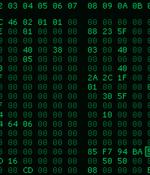Security News

"These attacks likely rely on access to multiple virtual private servers in conjunction with rented cloud infrastructure, open proxies, and DDoS tools," the tech giant said in a post on Friday.Redmond said it further observed the threat actor launching layer 7 DDoS attacks from multiple cloud services and open proxy infrastructures.

The Associated Press reported that in response to its inquiries about the cause of the outage, Microsoft admitted that Anonymous Sudan and DDoS orchestrated by the group were the cause of the outages. The post that the AP claims is Microsoft's admission of succumbing to Anonymous Sudan doesn't mention the source of the DDoS - but does state: "Beginning in early June 2023, Microsoft identified surges in traffic against some services that temporarily impacted availability. Microsoft promptly opened an investigation and subsequently began tracking ongoing DDoS activity by the threat actor that Microsoft tracks as Storm-1359.".

Microsoft has confirmed that recent outages to Azure, Outlook, and OneDrive web portals resulted from Layer 7 DDoS attacks against the company's services. The outages occurred at the beginning of June, with Outlook.com's web portal targeted on June 7th, OneDrive on June 8th, and the Microsoft Azure Portal on June 9th. Microsoft did not share at the time that they were suffering DDoS attacks but hinted that they were the cause, stating for some incidents that they were "Applying load balancing processes in order to mitigate the issue."

Cybersecurity researchers have discovered previously undocumented payloads associated with a Romanian threat actor named Diicot, revealing its potential for launching distributed denial-of-service attacks. "The Diicot name is significant, as it's also the name of the Romanian organized crime and anti-terrorism policing unit," Cado Security said in a technical report.

We and our store and/or access information on a device, such as cookies and process personal data, such as unique identifiers and standard information sent by a device for personalised ads and content, ad and content measurement, and audience insights, as well as to develop and improve products. With your permission we and our partners may use precise geolocation data and identification through device scanning.

You can book a DDoS attack on one of countless shady platforms, and then you don't even have to deal with the technology yourself. No matter what, a company's protective measures should always be kept up to date, and you should always question yourself about how well-prepared you are against a DDoS attack - or face severe consequences if you are caught unprepared.

The Swiss government has disclosed that a recent ransomware attack on an IT supplier might have impacted its data, while today, it warns that it is now targeted in DDoS attacks. Last Tuesday, the Swiss government disclosed that they were impacted by a ransomware attack on Xplain, a Swiss technology provider supplying various government departments, administrative units, and even the country's military force with software solutions.

The Microsoft Azure Portal is down on the web as a threat actor known as Anonymous Suda claims to be targeting the site with a DDoS attack.At the same time, a threat actor known as Anonymous Sudan claims to be conducting a DDoS attack against the Microsoft Azure portal, sharing an image of the page not working.

Microsoft is investigating an ongoing outage that is preventing OneDrive customers from accessing the cloud file hosting service worldwide, just as a threat actor known as 'Anonymous Sudan' claims to be DDoSing the service. "We've reviewing OneDrive telemetry that captures this impact scenario to determine the source of the service access failures and begin identifying a mitigation plan."

In this Help Net Security video, Mattias Fridström, Chief Evangelist at Arelion, talks about the DDoS threat landscape during 2023. DDoS attacks reflect significant geo-political challenges and social tensions and have become an increasingly important part of the hybrid warfare arsenal.